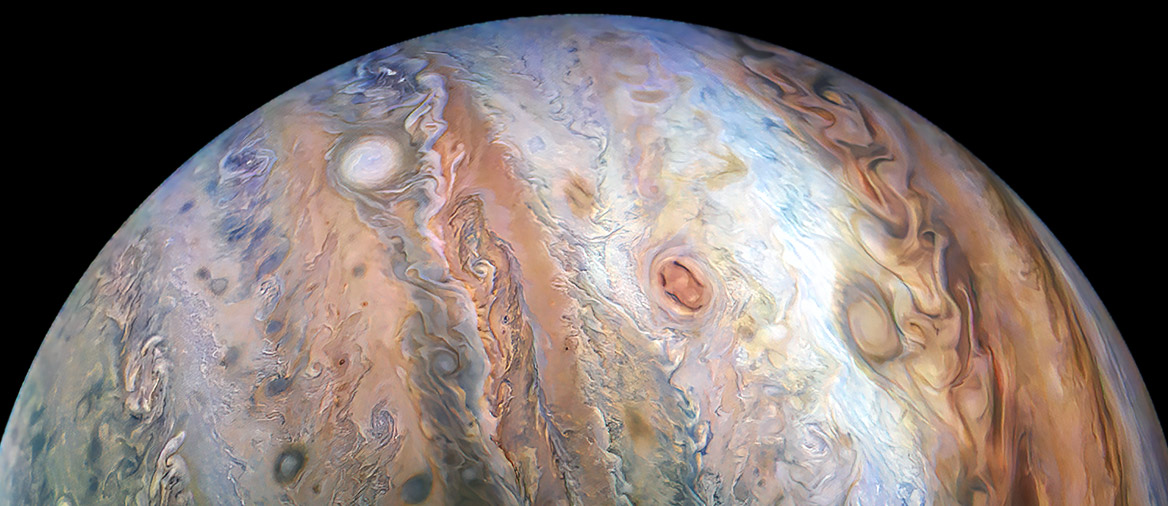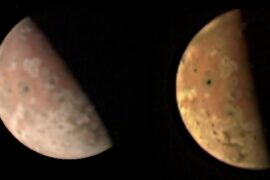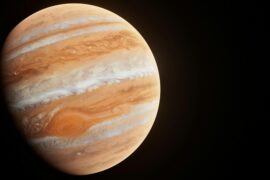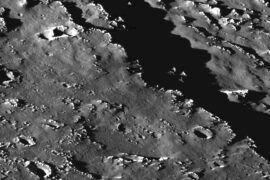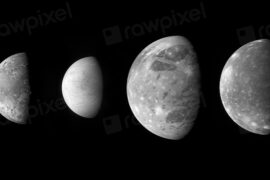Jupiter is one of the most intriguing planets in the Solar system. Not only it is the biggest planet and the one that spins the fastest, but it also has many other characteristics that make it interesting.
But there is a common question about Jupiter that can be tricky to answer and can have multiple answers, and that is what is the temperature of Jupiter? is it hot or cold?
In this article, we are finally going to solve this puzzle and will tell you why it can be hard to answer with just a simple number.
What factors determine Jupiter’s temperature?
There are multiple factors that affect a planet’s temperature. These include its distance to the Sun, composition, and the density and reflectiveness of the atmosphere.
Let’s take a look at these factors specifically for Jupiter.
Distance from the sun
Jupiter is the fifth planet in the Solar system. It is located, on average, 741 million kilometers (460 million miles) away from the Sun. For comparison, it is approximately 5 times farther away from the Sun than Earth.
This means that Jupiter receives significantly less sunlight than our planet, and usually that means it is going to be a cold planet.
Composition
Jupiter is a gas giant. This means it doesn’t have a solid surface and is mostly made out of hydrogen and helium. Even though it is shaped like a sphere, Jupiter is for the most part just a bunch of clouds swirling together at rapid speeds.
On one hand, this means that there is no surface that absorbs or retains heat. It also means that a lot of the Sunlight is reflected by these thick clouds and doesn’t enter the inner layers of the planet.
On the other hand, it also means that heat doesn’t escape the planet either. Remember that is the reason why Venus is the hottest planet in the Solar system, because of its thick, dense, atmosphere that traps the heat inside the planet.
So, that brings us back to our original question.
Is Jupiter hot or cold?
The answer is both. And it depends on what part of Jupiter you mean when you ask the question. The atmosphere and outer layers of Jupiter are very cold. The average temperatures in this area reach −185°C (−301°F). However, the inner layers get hot very fast. It is estimated that the temperatures near Jupiter’s core can reach 24,000°C (43,000°F).
Is Jupiter hotter or colder than Earth?
The short answer is that Jupiter is colder than Earth. The average temperature on Earth’s surface is 14°C (57°F) and the average temperature on Jupiter’s outer layer is −185°C (−301°F). Remember Jupiter doesn’t have a surface so that’s the closest we can make to a fair comparison.
However, that doesn’t tell the whole story.
The lower temperatures recorded on Earth’s surface is -89.2°C (-128.6°F), on Antarctica. It is also estimated that the temperature of Earth’s inner core is about 5,200°C (9,392°F).
So, in a way, you could say that Jupiter is both colder and hotter than Earth depending on where you are standing.
Summary
- Jupiter is 5 times farther away from the Sun than Earth. This means it receives very little sunlight.
- Jupiter´s atmosphere is very cold, with an average temperature of −185°C (−301°F). That is much colder than Earth.
- Jupiter´s inner layers and core, however, are extremely hot, reaching temperatures of 24,000°C (43,000°F).
Enjoyed this article?
Get daily 10-minute PDFs about astronomy to read before bed!
Sign up for our upcoming micro-learning service where you will learn something new about space and beyond every day while winding down.

